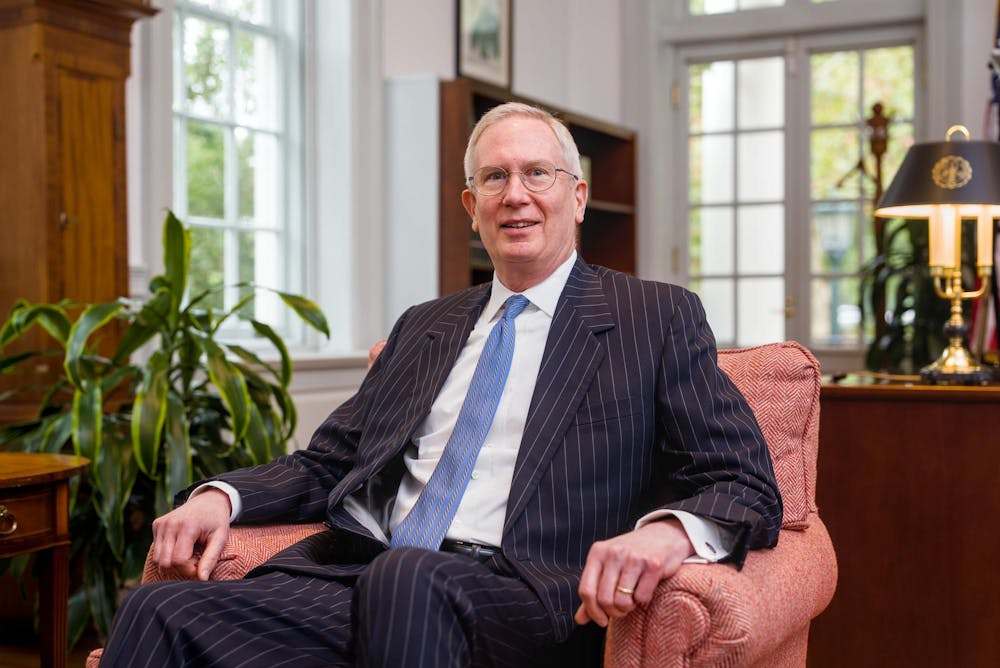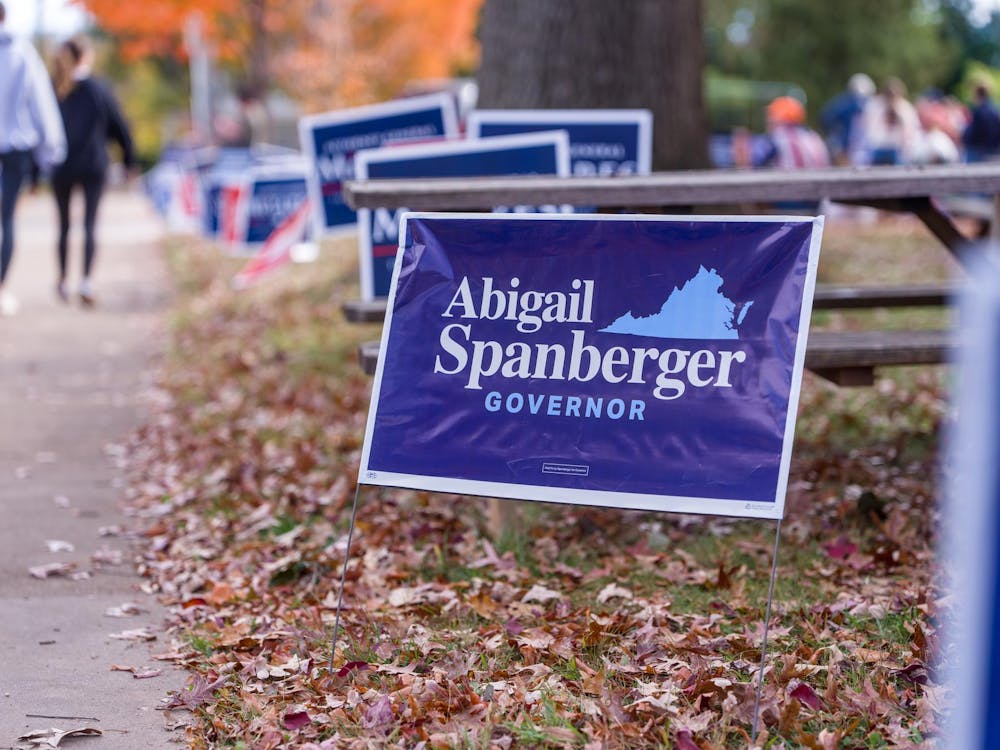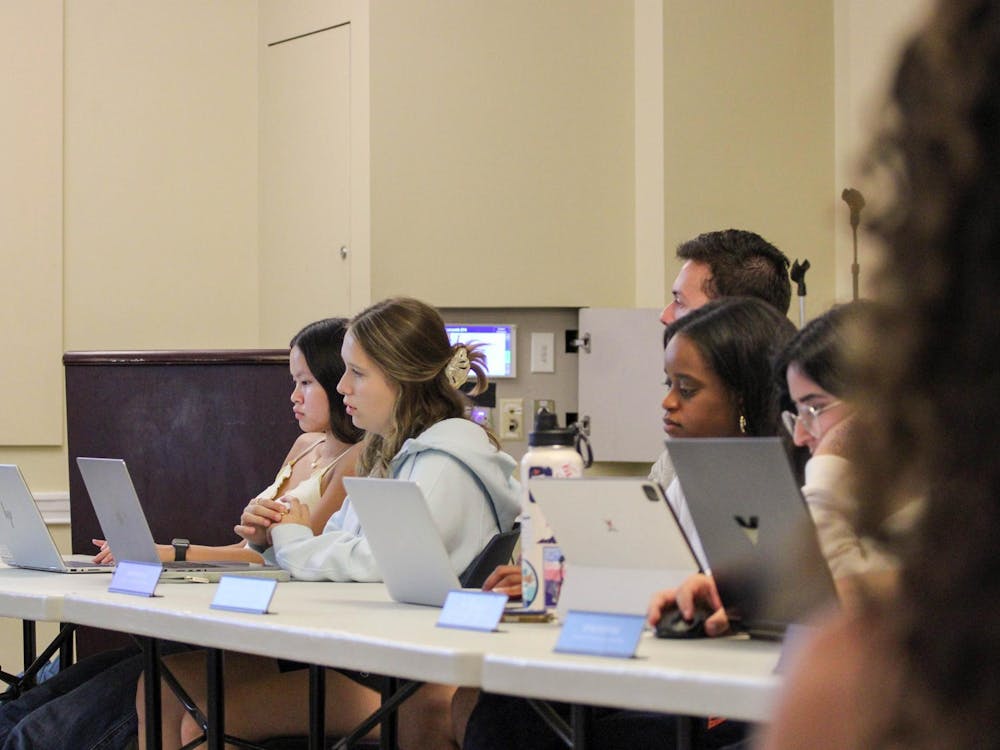Seven weeks after being selected as Interim University President Aug. 4, Paul Mahoney sat down with The Cavalier Daily to discuss his vision for the University during his short tenure, how his background prepared him for the job and what he sees as the University’s role in national debates.
Mahoney, who has taught at the School of Law for more than 30 years and served as its dean from 2008 to 2016, was appointed to the interim role in August after the resignation of former University President Jim Ryan, who was facing pressure from the Justice Department over affirmative action policies and alleged antisemitism on Grounds.
When the Board of Visitors asked him to serve as interim president, Mahoney said that the decision to accept was straightforward.
“I decided that if the Board thought that I was the right person to lead the University at this time, then I was going to do my absolute best to do so. U.Va. has been very good to me, and I want to do everything I can to pay it back,” Mahoney said.
While his appointment is temporary, Mahoney emphasized he sees this responsibility as preparing the ground for the University’s 10th president.
“It’s a paradox,” Mahoney said. “On one hand, by definition, an interim presidency is a temporary job, but on the other hand, I don't think you can succeed at it unless you take a long-term perspective. Maybe the best way to put it is that my job as interim president is to set things up so that the 10th president can succeed.”
On how his decades at the University have influenced his leadership, Mahoney said that his past experiences have convinced him that strong faculty are the cornerstone of institutional excellence.
“My time at the law school, both as a professor and as a dean, convinced me of the central importance of attracting and retaining the very best faculty,” Mahoney said.
He also pointed to his experience leading the School of Law during the 2007 to 2009 global financial crisis as a key test of leadership, one that he said prepared him to manage uncertainty in his current role as interim president.
“That taught me the importance of keeping a very close eye on the budget, and it also taught me the importance of being able to pivot quickly as circumstances change,” Mahoney said.
In recent debates, the term “shared governance” has been at the forefront of campus discussions. Over the past two months, student and faculty organizations have emphasized the principle in public forums, including a Labor Day teach-in that drew attention to federal overreach at the University and a statement from the United Campus Workers of Virginia at U.Va. to the presidential search committee urging a stronger role for faculty, staff and students in decision-making.
In response to these debates, The Jefferson Council, a conservative alumni group, published several opinion pieces highlighting that shared governance has no legal or historical basis at the University.
Mahoney said he hopes to prioritize shared governance by ensuring University leadership remains attentive to the voice of faculty, staff, students and alumni.
“To me, shared governance means that the top leadership of the University should be attentive to the views of faculty, students, staff and even alumni in the Charlottesville community, should reach out to those constituencies whenever possible and should take a full account of their interests in making decisions,” Mahoney said.
At the same time, Mahoney stressed that the president must maintain a close working relationship with the Board of Visitors, which oversees the University.
“I report to the Board, and of course, I look forward to working with them to advance the University’s mission,” Mahoney said. “It’s also true that our Board members, both now and historically, have been very accomplished people, and they’re a great resource … of advice and counsel. But of course, they’re not the only source of advice and counsel. Faculty, students, etc, are also very important constituencies to whom the president is also accountable.”
Beyond his relationship with the Board, Mahoney must also navigate federal oversight, with the University facing multiple ongoing Justice Department investigations. Between April and June, the Justice Department sent seven letters to University officials requesting admissions data, scrutinizing DEI policies, and asking for evidence of how the University was handling alleged antisemitic incidents.
At a full Board meeting Sept. 12, Mahoney announced that investigations into policies at the Frank Batten School of Leadership and Public Policy and the McIntire School of Commerce and alleged antisemitic discrimination had been closed. He said that he had personally engaged in discussion with Justice Department officials and that the University had received letters confirming the resolved status of those particular investigations.
He did not name all specific reasons why the Justice Department chose to close those probes, only that they were based on information the University submitted about its policies and practices.
“We provided information about our policies and actions to the Department of Justice, and on that basis, they decided to close those investigations,” Mahoney said.
Mahoney acknowledged that five investigations are still outstanding, covering broad areas from admissions to alleged discriminatory programming. According to Mahoney, the University is currently engaged in discussions about the five remaining investigations.
Looking ahead, Mahoney outlined a mix of short-term goals and longer-term ambitions.
“First, I hope to persuade our students, faculty, staff and alumni that the University is stable and that it’s headed in the right direction,” Mahoney said. “Second, I want to bring our discussions with the Department of Justice to a satisfactory conclusion, but I also want to work on some long term projects that I hope will create some momentum for the 10th president.”
Among those projects, Mahoney emphasized cultivating civil discourse and viewpoint diversity, as well as monitoring costs across the University with the goal of maintaining affordability for students.
Mahoney said the University should also serve as a national example in politically charged debates surrounding higher education.
“The role U.Va. should play is to demonstrate that we can disagree and debate, but do it in a way that is civil and respectful,” Mahoney said. “We are part of the story of America’s founding and America was founded on the principles of free speech and personal liberty, and we should be faithful to those principles.”
Though Mahoney will not participate in the selection of the University’s next president, he shared what he believes the Board should look for.
“I think the next president should be a servant leader who will always put the interests of the University first,” Mahoney said. “I hope it will be someone who understands U.Va. and can inspire our students, faculty, staff and alumni. I also think it should be someone with a demonstrated track record of fostering academic excellence.”
When asked if he would pursue the role permanently, Mahoney said that it was “to be determined.”
As interim president, Mahoney said his hope for remembrance is simple.
“I just hope that they will say that I was the right person for the circumstances that I faced,” Mahoney said.







